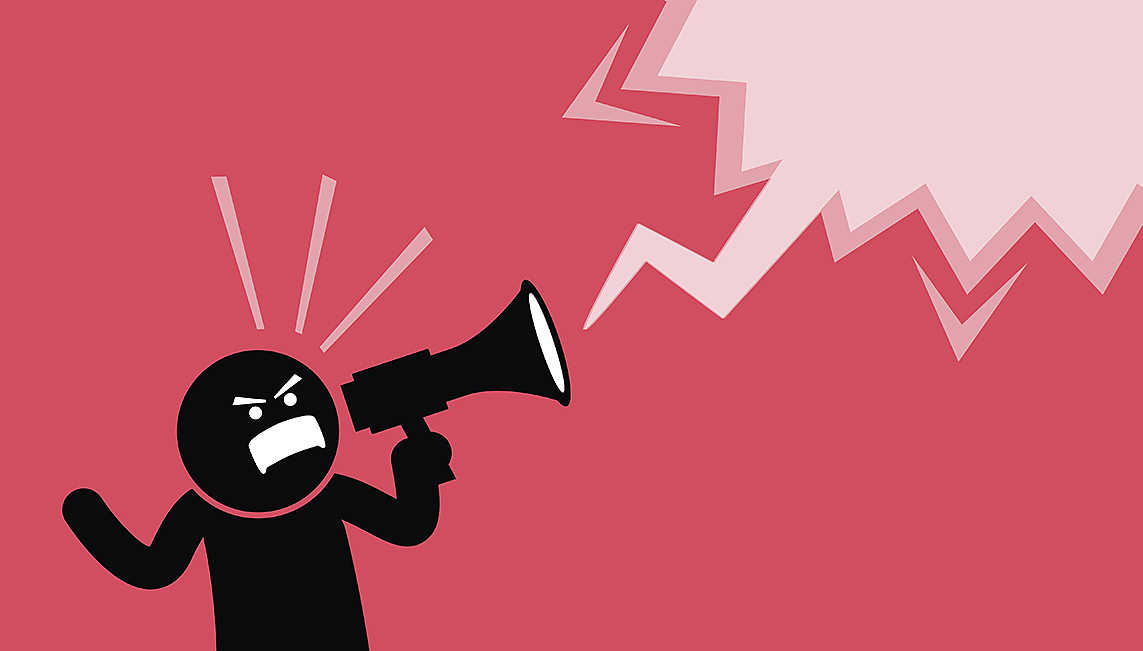Published on: January 12, 2022

HATE SPEECH
HATE SPEECH

WHAT
- Speech/words whose intent is to create hatred towards a particular group, that group may be a community, religion or race.
- May or may not have meaning, but is likely to result in violence.
IN INDIA
- Hate speech is neither defined in the Indian legal framework
- Supreme Court, in Pravasi Bhalai Sangathan v. Union of India (2014), described hate speech as “an effort to marginalise individuals based on their membership in a group” and one that “seeks to delegitimise group members in the eyes of the majority, reducing their social standing and acceptance within society.”
- The High Court of Karnataka, in Campaign Against Hate Speech v. The State of Karnataka (2020), was of the opinion that the Indian Penal Code illegalises speeches that are intended to promote enmity or prejudice the maintenance of harmony between different classes
- Sections 153A of the IPC – penalises promotion of enmity between different groups
- Sections 153B of the IPC – punishes imputations, assertions prejudicial to national integration
- Sections 505 of the IPC – punishes rumours and news intended to promote communal enmity
- Sections 295A of the IPC – criminalises insults to the religious beliefs of a class by words with deliberate or malicious intention, contribute to combating hate speeches.
- The Supreme Court has upheld the view that the objective behind such provisions is to “check fissiparous communal and separatist tendencies and secure fraternity so as to ensure the dignity of the individual and the unity of the nation”.
WHY CHECK HATE SPEECH
- The Supreme Court, in State of Karnataka v. Praveen Bhai Thogadia (2004), emphasised the need to sustain communal harmony to ensure the welfare of the people.
- In the Pravasi Bhalai Sangathan case, the Supreme Court underlined the impact hate speech can have on the targeted group’s ability to respond and how it can be a stimulus to further attacks.
- The Madras High Court has on several instances dealt with the issue of hate speech, characterising it as small spark capable of merely lighting a lamp to destroying a forest.
- In G. Thirumurugan Gandhi v. State (2019), the Madras High Court explained that hate speeches cause discord between classes and that responsibility attached to free speech should not be forgotten.
- Summing up these legal principles, in Amish Devgan v. Union of India (2020), the Supreme Court held that “hate speech has no redeeming or legitimate purpose other than hatred towards a particular group”.
POLICY PRESCRIPTIONS
- The Law Commission of India, in its 267th report, recommended the insertion of two new provisions to criminalise and punish the propagation of hate speech: Section 153C and Section 505A of IPC.
- Section 153C was drafted to cover an offence committed when any person uses threatening words which are intended to cause fear, or commends hatred for the purpose of inducing violence through words, spoken or written, visible representation or signs on the grounds of race, caste, religion, sex, gender identity and other characteristics.
- Section 505A was to include provisions penalising causing of fear, alarm, or provocation of violence.
- Furthermore, the 189th Report of the Parliamentary Standing Committee on Home Affairs, in 2015, recommended the incorporation of separate and specific provisions in the Information Technology Act to deal with online hate speech.
- None of the recommendations have been acted upon and this has partly given rise to ambiguity in construing hate speech by various constitutional courts.
NEED OF THE HOUR
- Much of the existing penal provisions deal with hate speech belong to the pre-Internet era. Need of the hour is specialised legislation that will govern hate speech propagated via the Internet and, especially, social media.
- Reference can be drawn to the Australian federal law called the Criminal Code Amendment Act, 2019, which imposes liability upon Internet service providers if such persons are aware that any abhorrent violent material, which is defined to include material that a reasonable man would regard as offensive, is accessible through the service provided by them.
- Taking cue from best international standards, it is important that specific and durable legislative provisions that combat hate speech, especially that which is propagated online and through social media, is enacted by amending the IPC and the Information Technology Act.
Ultimately, this would be possible only when hate speech is recognised as a reasonable restriction to Free speech

